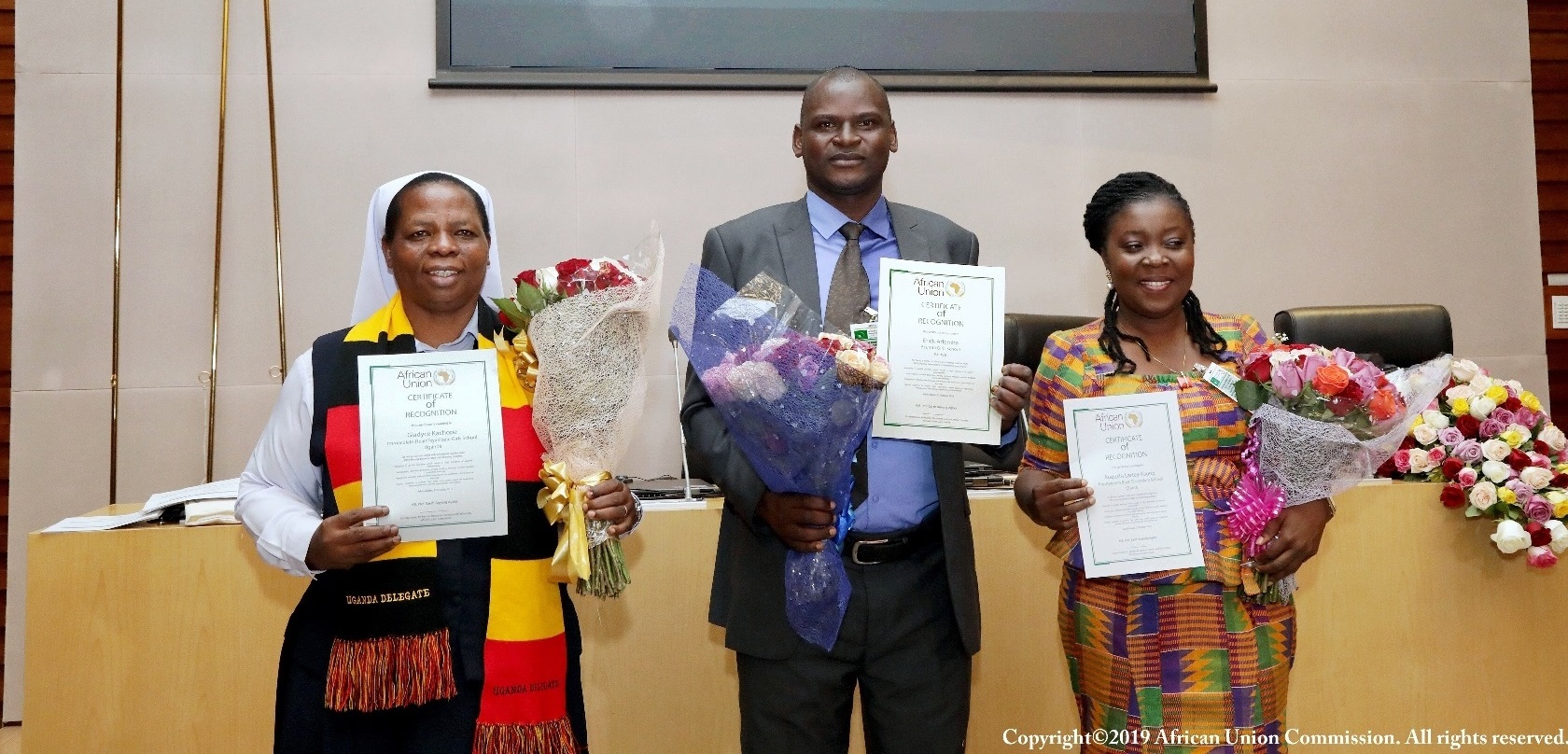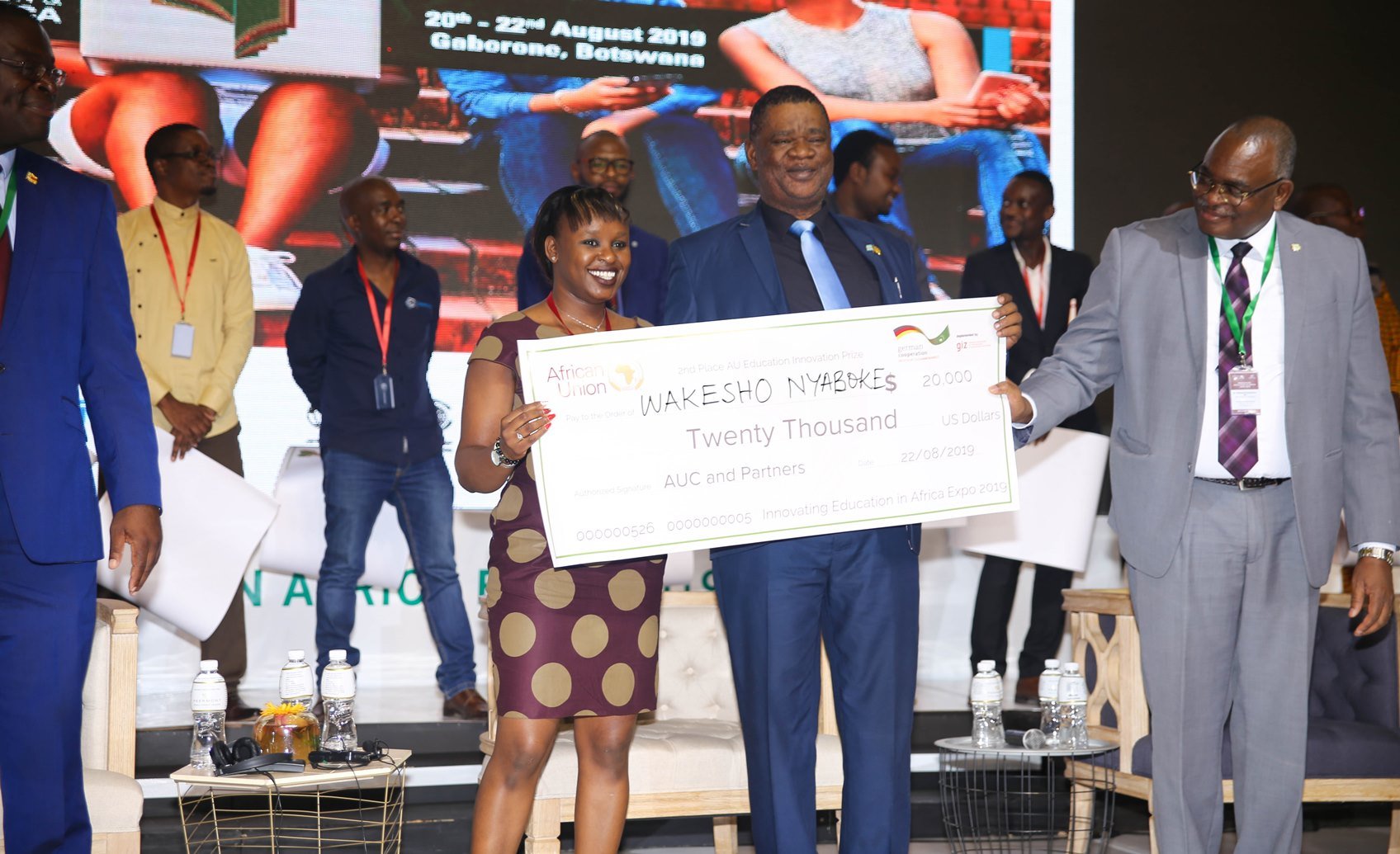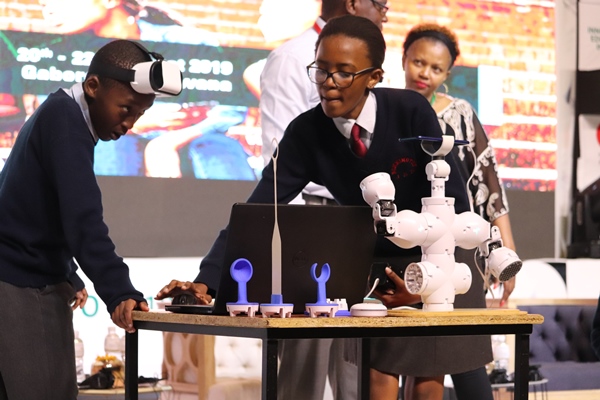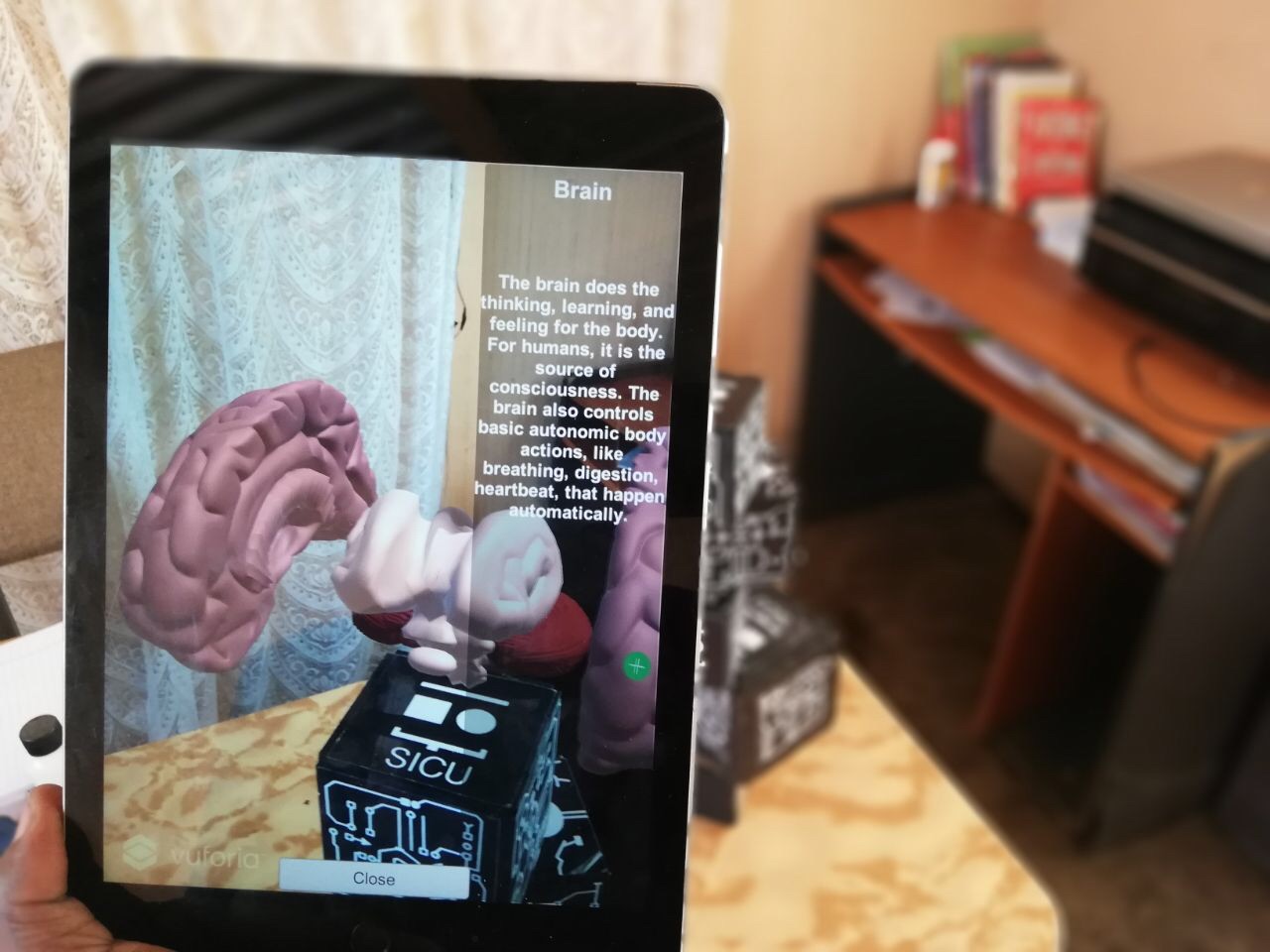
Title of Innovation: Sirealities
Year of implementation: 2018
Implemented by: Sisanda Tech
Country/Countries where the Innovation is being implemented: South Africa
Problem being solved
80% of public schools in South Africa don’t have a science laboratory that means 9.6 million learners will complete their science studies without acquiring necessary practical skills that they can use to get a job or be able to solve the challenges the face. The World Economic Forum cites that 65% of children entering school today will work in a completely new job type(which is STEM-related) that does not exist today. Failure to solve this problem will increase our youth unemployment rate which is currently at 38.2%.
Description of innovation
Si realities is a virtual science laboratory for science learners from Grade 4 to 12. It allows the learner to perform the experiments by just using the camera of their smartphone and tablet to project a virtual science apparatus in front of the learners. The learner can just perform the experiment just using tablet. Si realities aims to make science engaging, fun and accessible to millions of learners in Africa. Our approach is to make Si realities a self-learning platform that any learner could log in and begin learning on and off the class room.
Outcomes and Impact
In 2018 we have reached 200 learners who have indicated that Si realities makes them understand abstract science concepts and 59 teachers who said Si realities will improve the engagement in the classroom and it's easy to be integrated with the curriculum and the pace setter. We are currently piloting with 8 schools.
Potential to be scaled and replicated
Si realities comes with two version namely the personal version and the school version. The School version contains experiments that are curriculum-aligned and delivered directly to schools. While the personal version contains experiments from the school version with additional experiments from science experiments. It can be downloaded from popular App Store such as Google Playstore and Apple App Store. We want the learner to Explore, Experiment and Learn anywhere and anytime.
Our revenue model for personal version is based on freemium model, we also sell merchandise while the school version we make money through licences.
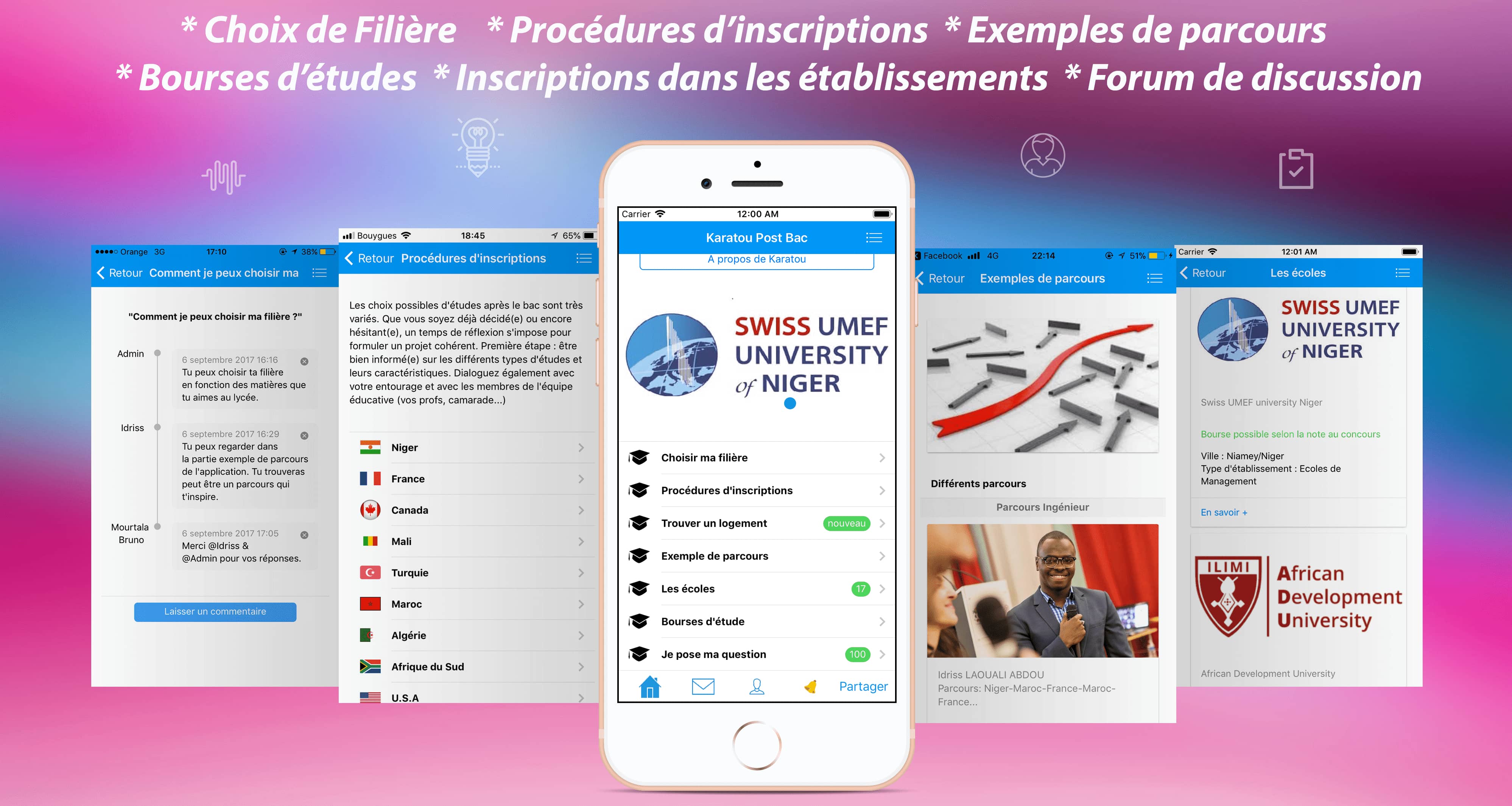
Title of Innovation: Karatou Post Bac
Year of implementation: 2016
Implemented by: ILAN Tech & Services
Country/Countries where the Innovation is being implemented: Niger
Problem being solved
In Africa in general, in Niger in particular, thousands of young people are failing because of a lack of knowledge of the sectors in which they have been steered by default. Some go from sector to sector before giving up. Karatou Post bac addresses the following problems:
- Accessibility problem and lack of information on post-graduation opportunities,
- Lack of role models in the close circle of some young people,
- Training choices that are not at the same time as the job market,
- Difficulties for graduates outside the capital to enrol (decentralisation),
- Ignorance of the realities of the outside world.
Description of innovation
Enabling young Africans to take charge of their future is the mission of the Karatou Post bac mobile application. It can be downloaded from the Google Play Store and App Store. Once installed, students can take advantage of these features:
- Choose my course: Allows young people to know the courses, opportunities and have testimonials from young people who have studied in the sector.
- Registration procedures: presents the education system, the registration procedures, the cost of living in different countries
- Examples of journeys: inspiring young people and allowing them to project and break down certain barriers of self-censorship through examples of inspiring journeys.
- Interactive forum: a place of exchange where young people ask questions, learn about education and housing,
- Registrations in establishments (In Niger, Morocco, Tunisia, France...) directly from the application. Our ambition is to
- Help in finding housing
- First-time arrival set-up service in different countries
- Personalised profile orientation coaching (future functionality)
- Scholarship offers.
We organize orientation workshops in high schools and introduce the application as a complementary tool. Our proposal is unique in Niger, we continue to develop innovative services locally.
Outcomes and Impact
The Karatou Post Bac app is used by no more than 3,800 high school students and students in Africa. More than 86% of users are located in Niger. In 2018, we have accompanied more than 1500 young graduates in their post-graduate orientation, 17 students have benefited from our help in finding housing in France, Morocco and Senegal. Today, changes the daily life of Nigerians in their post-bac approach. Indeed, in the more than 200 reviews we received, our users (students and teachers) testify that Karartou Post bac allowed them to focus on their studies, they were inspired by the examples of courses.
Potential to be scaled and replicated
In all societies, education is essential. Every year millions of young people face challenges that Karatou Post Bac brings solutions to. It is available for download in all countries around the world. Today, it is in French. It could be translated for scaling in English-speaking countries, we need resources to do that. In addition, we need support to finance communication campaigns in different countries and to enable young people from other countries to benefit from the most from our application.
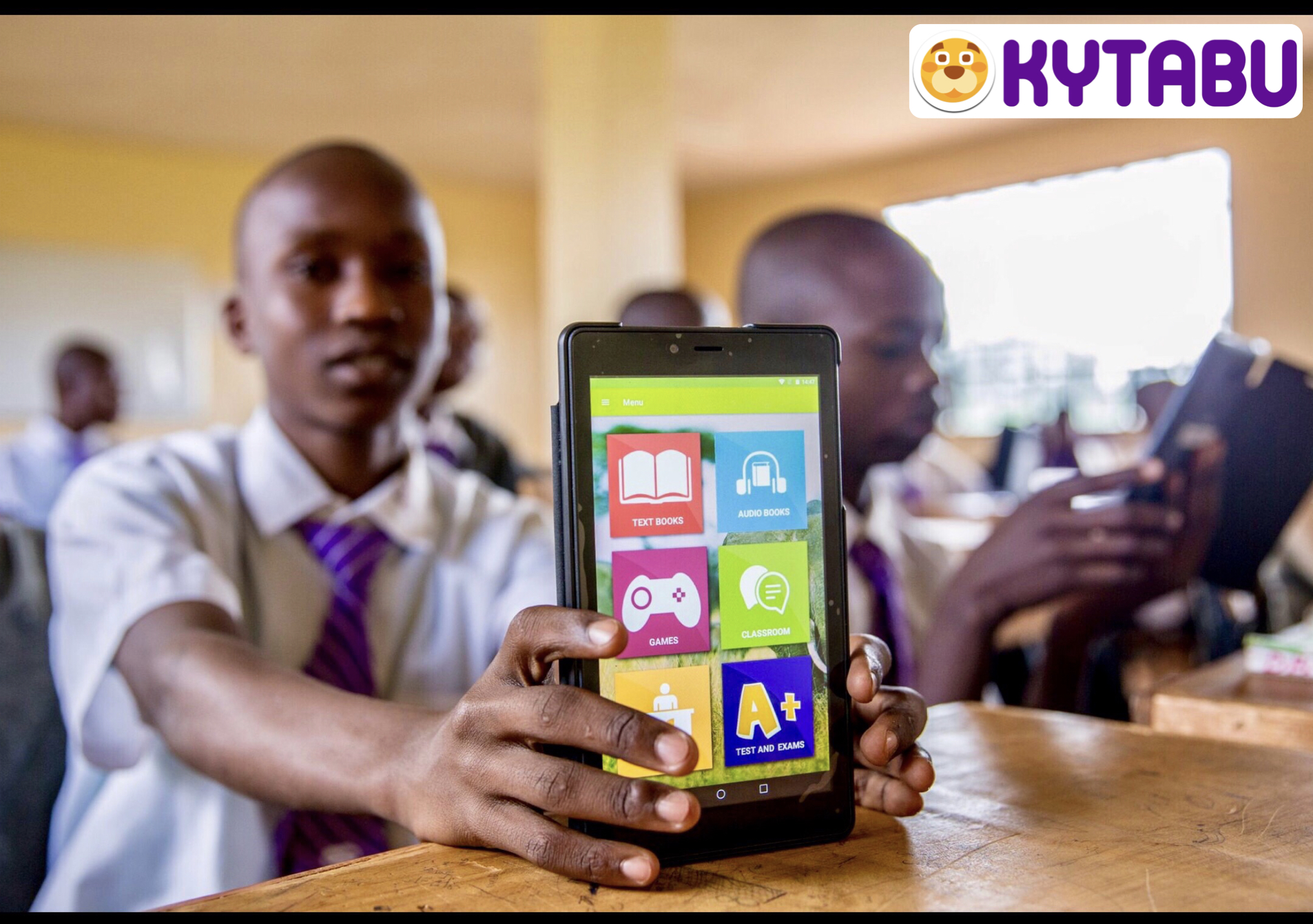
Title of Innovation: Kytabu
Year of implementation: 2014
Website: www.kytabu.africa
Implemented by: Kytabu Inc.
Country/Countries where the Innovation is being implemented: Kenya
Problem being solved
One of the biggest challenges in education is access to affordable, relevant textbooks in a convenient and timely manner. This is more often due to the distribution challenges Kenya faces, but also because most families cannot afford all the required textbooks a child needs at the beginning of the school term as required. Most students end up sharing textbooks in class or just listen to the teachers and have no reference points for revision or assignments once the class is finished. This lack of learning resource has been at the heart of low numeracy and literacy levels in most schools accroos Kenya.
Description of innovation
Kytabu is a mobile application containing all the books required for students in primary and secondary school in the Kenyan education system. Using a tablet or smart phone, any student anywhere can easily download the free app, select the books they would like to use, download them to their device, and rent the book for as little as $0.01 a day. With Kenya having a mobile phone penetration of more than 70% and a government program that put more than one (1) million tablets in low income schools, access to devices has been drastically reduced. This means that the Kytabu application has the potential to help more than 1 million students access all the learning reasources they would need affordable, conveniently and in anyt price range they are able to manage. Renting content as opposed to buying it outright reduces the pressure for parents, increases the accessibility for students and schools, removes constraints on teachers as the sole source of learning material and gives valuable insights to publishers and the government on the use of learning content by students.
Outcomes and Impact
Providing access to the learning content students need in the areas we have been adopted has increased the number of students that have books, amount of time the students engage with the content and each other on learning, the various forms of content they engage with (they have access to audiobooks, videos and interactive exams on the app) and all this has improved their overall learning experience and performance in school. Giving student both the content and platform to driver their own leaning experience empowers them to take ownership of their learning trajectory and this improves as more students get on Kytabu and collaborate.
Potential to be scaled and replicated
Because Kytabu is a mobile application, it can be scaled exponentially countrywide through the partnership of private sector stakeholders such as mobile service providers. To move from one country to another, Kytabu as a platform would only need to partner with the local country publishers to add their content to the platform for digital distribution. Instantly, the application can them move from Kenya to Tanzania, Uganda, Rwanda and even Francophone countries where the content is available in digital format. The growth of mobile phone access and mobile payments has given apps like Kytabu the framework to scale exponentially.
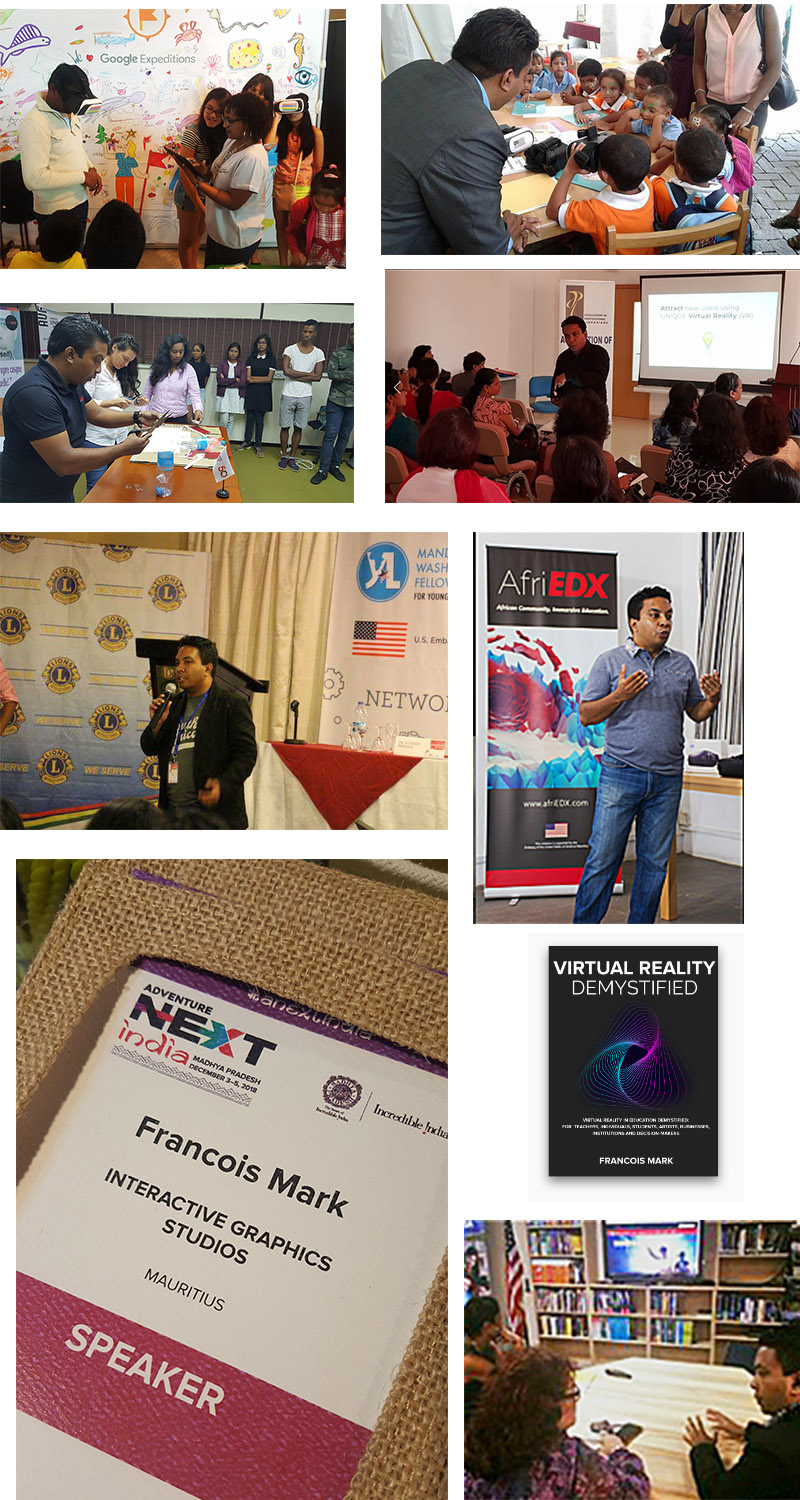
Title of Innovation: Immersive education
Year of implementation: 2017
Website: www.afriedx.org
Implemented by: AfriEdx
Country/Countries where the Innovation is being implemented: Côte d'Ivoire, Mauritius, South Africa
Problem being solved
One in Five Children, Adolescents and Youth is Out of School (UNESCO). VirtuaL REALITY has the potential to make learning more interesting and dynamic. VR can be leveraged to enhance pupils’ engagement in the learning process, thereby contribute to contain and eventually reduce the dropout rate. Students will acquire knowledge in a participatory manner, instead of passively. VR is already well-known and highly exploited in the entertainment industry. We are persuaded that VR has a huge potential in education. It will not replace existing educational methods or systems but it will be a powerful complementary pedagogical tool.
Description of innovation
As humans, we have always used visually-based means to help us remember things. VR is the next logical step in the evolution of visual learning. According to the “Cone of Learning”, developed by the National Training Laboratory, most students only remember about 10% of what they read from textbooks.
However, they retain nearly 90% of what they learn through teaching others. Virtual Reality is the medium that can enhance learning by making it more memorable. For example, Nqileni Village, the home of the Bulungula Incubator, is so remotely located that students are not exposed to the wider world. Now, Virtual Reality is giving the children the opportunity to explore the world and “travel” for the very first time in their life. VR is a great tool to teach geography, to mention but one instance. Students might have difficulties grasping the concept of a volcano looking at 2D photographs in school textbooks. They might not be able to grasp what the teacher is talking about, especially if they live in a country where volcanic eruptions are unknown. VR is a fantastic way to “immerse” students in the eruption of a volcano. By using VR students can improve their learning capabilities as well as their grades.
Please watch this video for more information: https://youtu.be/ZRWe3f-8bnc. In places, where internet access is very limited, our proposed solution enables teachers to use the offline mode.
And the introduction of Google Expeditions by AfriEDX at Père Laval School, St Croix, Mauritius.
https://www.youtube.com/watch?v=T1pCp7hS2_4
Outcomes and Impact
Through Google Expedition, we are have the merit of circumventing one of the major weaknesses of VR in the context of its utilization by children. Normally, the user is the only master in control of the VR headsets. Thus, as parents, we cannot always know what our children are watching. Given the nature of the internet, it is a wide-open door to risky, if not flatly undesirable, experiences. However, Google Expeditions offers us the means, ability including the safety to channel the user to the purpose of use and to have control over both contents and duration of viewing.
That’s a big difference!
Potential to be scaled and replicated
- There is a strong training component to the project. Teachers are trained to contribute in the creation of VR educational contents using online collaboration tools that can be shared with other schools. The pedagogical model is reproducible and applicable over a long time.
- The forthcoming Virtual Reality (VR) Demystified book that I’m writing focuses on Virtual Reality (VR) in education. Please visit www.demyztified.com for more details.
- To sustain the projects, we are organising workshops for schools, teachers, lecturers, universities, students etc. Please watch our recent workshop: https://www.youtube.com/watch?v=i6n8BPrNPKQ
_vlaby.jpg)
Title of Innovation: Vlaby (virtual lab platform)
Year of implementation: 2018
Website: www.vlaby.com
Implemented by: VLaby for Educational Development
Country/Countries where the Innovation is being implemented: Egypt, Libya, Tunisia
Problem being solved
There are many problems in traditional science labs in most African schools due to lack of facilities, equipment and chemicals, lack of time and space for do experiments, and the risk of some experiments that may cause disasters in the lab, and increase the number of students in lab , all of which prevent students from benefiting from the practical aspect in schoolsso the teacher merely explain the theory on the blackboard without do in practice, and this negatively affects the students' understanding of the equations and laws, and makes education based only on Preservation and indoctrination rather than understanding
Description of innovation
Vlaby is an online educational platform that for virtual labs that allows students and teachers to do all experiments and laboratory activities in an interactive online environment that simulates the traditional laboratory and has all the potentials, laboratory equipment and chemicals in an interactive and customized manner for each student according to the curriculum and experiments in science, physics, chemistry,
We have provided many benefits to students, teachers and schools such as:
- Allow students to do experiments at any time, anywhere and any number of times
- Providing a safe, attractive and exciting environment for learning without the danger of traditional laboratories
- Save time and effort to the teacher while explaining the practical lessons by conducting them in the platform
- Providing financial resources to purchase laboratory equipment and tools in schools
- Encouraging competition among students through improvisation
- So we have achieved our goal in facing the many problems found in traditional laboratories in schools and universities such as lack of tools and chemicals and increase the number of students in the laboratory
Outcomes and Impact
Winning the Best Performance Award from the Cairo University Business Incubator,
The Vlaby platform also had a great impact on the students and the labs. Through the events and meetings we had with the students and teachers who use Vlaby, they showed their confidence and the great influence that Vlaby’s use of understanding the equations and practical experiments
We have always sought to cover all the practical experiences of our students in the stages of learning before the university. We have achieved about 100 experiences to skip the Egyptian and Some Arab countries curriculum in the science of the preparatory stage in Arabic and English
Potential to be scaled and replicated
vlaby is the first Arab platform in Egypt and the Arab world offers virtual labs dedicated to our curriculum, and science is one of the most important subjects that must be addressed in all African countries, so we have a great opportunity to expand in many Arab and African countries because we cover laboratory experiments in science A state of Arab and African countries and according to the language they study,
So our plan is some of the completion of laboratory experiments in Egypt and some Arab countries will try to overcome many of the experiences in African countries and in English and French
Page 4 of 7


